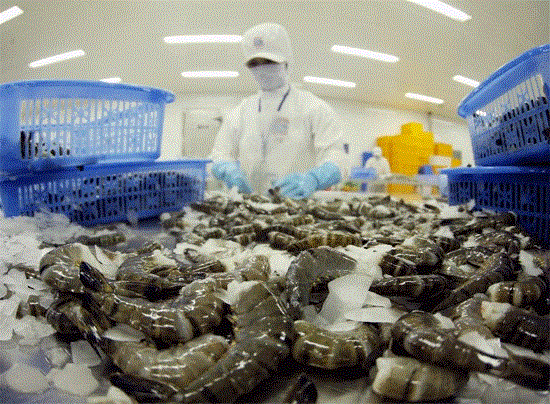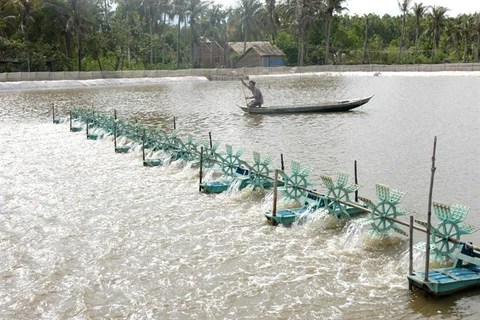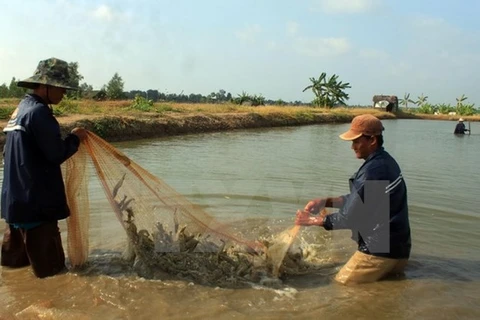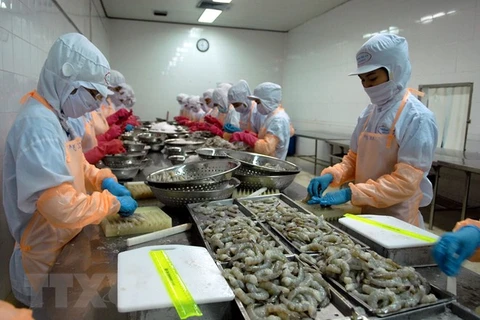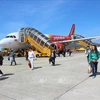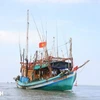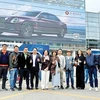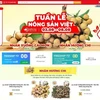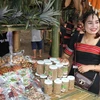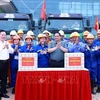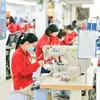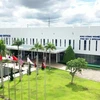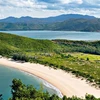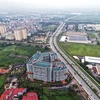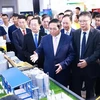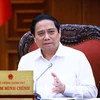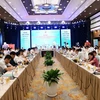HCM City (VNA) – Eco-shrimp farming, which has been spreading in the Mekong Delta localities in recent years, is touted as a model for sustainable aquaculture development thanks to its strengths in environmental protection, low costs, and high profit.
Eco farming refers to the practice of raising shrimps in rice fields or mangrove forests at low density. Compared to industrial shrimp cultivation, farmers do not have to pay that much on feeds, waste water treatment system, and medicine to treat diseases. Eco farming also requires less labour.
Meanwhile, shrimps raised under this model are sold at higher price than industrial shrimps.
According to Dinh Xuan Lap, Vice Director of the International Collaboration Centre for Aquaculture and Fisheries Sustainability, eco-shrimp farming model created jobs for more than 700,000 labourers in the Mekong Delta.
Chairman of the Bac Lieu province People’s Committee Duong Thanh Trung said that as of May, 2018, the province housed more than 120,000 hectares of water surface used for eco shrimp farming, and improved extensive shrimp farming.
He said the province will promote the application of advanced technologies in eco-shrimp cultivation, adding that the model allows local famers easily control diseases, prevent pollution in the farming areas, and ensuring the living environment for both the shrimps and farmers.
However, to ensure the sustainable expansion of eco-shrimp farming, there should be close connection between production and marketing processes, experts said.
Chairman of Minh Phu Group Le Van Quang said that Vietnamese eco-shrimps have been granted certifications by prestigious orgasisations, and have been shipped to more than 160 countries across the five continents.
Minister of Agriculture and Rural Development Nguyen Xuan Cuong stated that localities have to draw up strict shrimp farming process so as to enhance competitive capacity for Vietnamese shrimps.-VNA
Eco farming refers to the practice of raising shrimps in rice fields or mangrove forests at low density. Compared to industrial shrimp cultivation, farmers do not have to pay that much on feeds, waste water treatment system, and medicine to treat diseases. Eco farming also requires less labour.
Meanwhile, shrimps raised under this model are sold at higher price than industrial shrimps.
According to Dinh Xuan Lap, Vice Director of the International Collaboration Centre for Aquaculture and Fisheries Sustainability, eco-shrimp farming model created jobs for more than 700,000 labourers in the Mekong Delta.
Chairman of the Bac Lieu province People’s Committee Duong Thanh Trung said that as of May, 2018, the province housed more than 120,000 hectares of water surface used for eco shrimp farming, and improved extensive shrimp farming.
He said the province will promote the application of advanced technologies in eco-shrimp cultivation, adding that the model allows local famers easily control diseases, prevent pollution in the farming areas, and ensuring the living environment for both the shrimps and farmers.
However, to ensure the sustainable expansion of eco-shrimp farming, there should be close connection between production and marketing processes, experts said.
Chairman of Minh Phu Group Le Van Quang said that Vietnamese eco-shrimps have been granted certifications by prestigious orgasisations, and have been shipped to more than 160 countries across the five continents.
Minister of Agriculture and Rural Development Nguyen Xuan Cuong stated that localities have to draw up strict shrimp farming process so as to enhance competitive capacity for Vietnamese shrimps.-VNA
VNA

